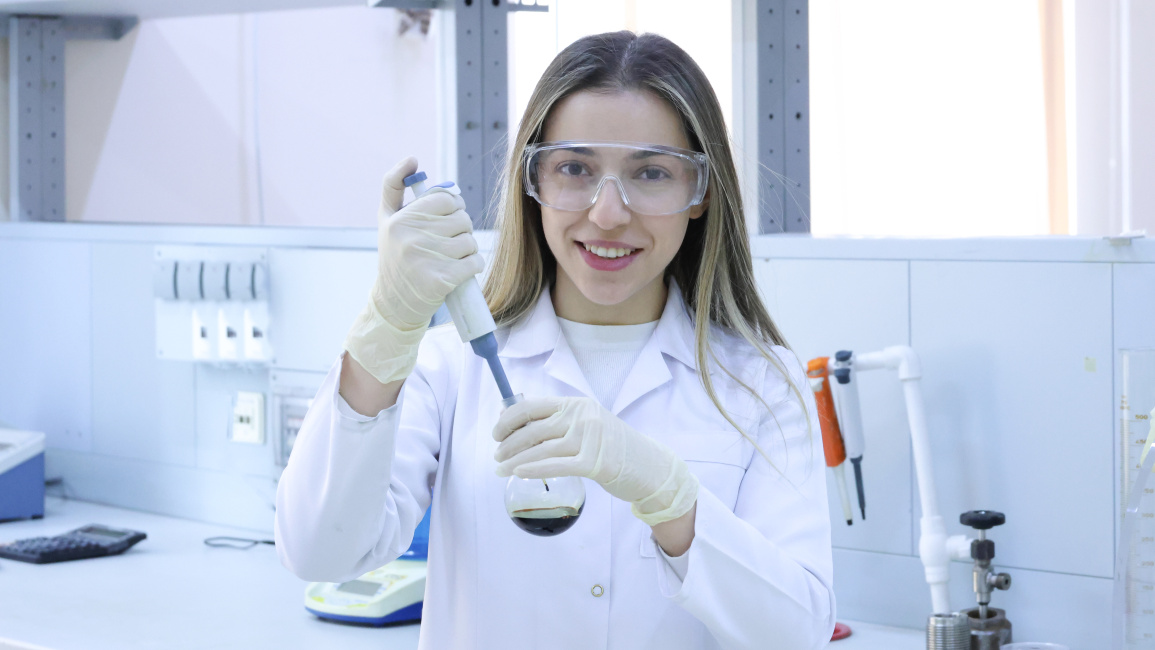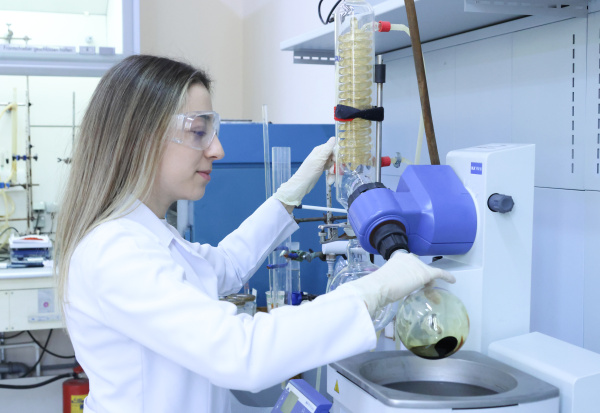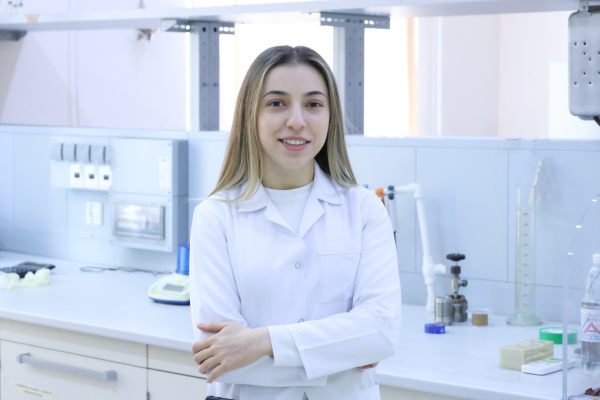February 12, 2024 | 15:29
Science
Research
Competitions
University as incentive to engage in science
Emma Khachatryan, Ph.D. student at YSU Institute of Pharmacy and junior researcher at the research center, is one of the winners of the grant competition "Research Assistance Program for Young Applicants and PhD Students - 2023" announced by the Higher Education and Science Committee of RA MoESCS.

Within the scope of the grant program, she is conducting a study on "Asymmetric synthesis of (S)-α-alanine analogues containing alkyne and piperazine substituents in β-position and investigation of biological properties".
"When you are involved in chemical experiments, you are like a magician who is constantly creating new compounds and improving her own skills. You always imagine what you should get as a result of your scientific experiment, but sometimes it can take a different course, which makes the process even more interesting", this is how the postgraduate student of YSU started the conversation with us about science and the implementation of the scientific program. Emma entered the world of chemistry and laboratory experiments when she was 16 years old and studying in college. By being admitted to YSU, she made sure that the chosen path was the right and only one.

"The university environment is one of the most important and positive aspects that supports the implementation of quality scientific work. The teaching staff and my colleagues are always willing to help me and share their knowledge. There are no colleagues and supervisors here, we are friends and family," said Emma, adding that in order to create lasting value in the world of science, you need to constantly improve yourself, study professional literature and attempt to discover something new.
The postgraduate student, who is constantly involved in various research programs, is now conducting scientific research under the supervision of Academician Ashot Saghyan, Doctor of Chemical Sciences, Professor at the Department of Pharmacochemistry and Pharmacognosy.
"My scientific supervisor is always by my side, he directs, suggests which way to go to discover something new, to understand, to find the right direction," said Emma, noting that they are now investigating the asymmetric synthesis of non-protein amino acids not yet described in the professional literature. After the discovery, the young researcher will study their biological properties: antibacterial and antiviral activity.

"Now I am in the process of obtaining amino acids. Before that, I studied the relevant literature, had discussions with my scientific supervisor, got the necessary starting materials and synthesized the resulting complexes, from which I now isolate the targeted non-protein amino acids," said Emma. As a result of the research, optically active amino acids will be obtained, which will later be the basis for obtaining peptides. As it is known, amino acids are considered an active component of biologically and pharmacologically active peptides and other pharmaceutical preparations.
The study will last 3 years. Many pharmaceutical preparations widely used in medical practice contain an optically active amino acid as a pharmacologically active component. They are considered an important component of modern antitumor, hypotensive and other medicinal preparations.

